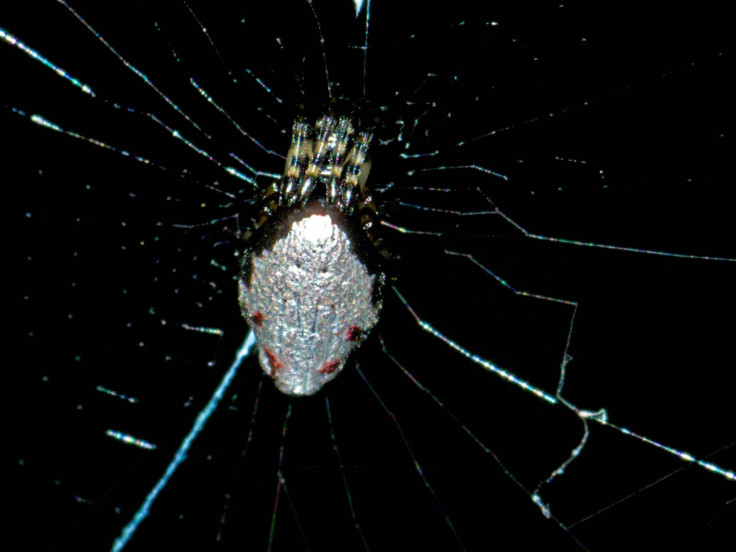Wasp masters turn spiders into zombies to act as their web-building slaves

A species of wasp has been found to rob host spiders of their free, forcing them to build their nursery nests for them.
Parasitic Reclinervellus nielseni wasps turn Cyclosa argenteoalba into zombies that construct a web that protects the wasp pupae during metamorphosis, scientists have found.
Published in the Journal of Experimental Biology, scientists from Kobe University in Japan were looking at host manipulation by parasites and parasitoids: "Host manipulation... is a fascinating phenomenon within evolutionary ecology, representing an example of extended phenotypes," they wrote.
"To elucidate the mechanism of host manipulation, revealing the origin and function of the invoked actions is essential."
They said the wasp they studied turns its host spider "into a drugged navvy" that then modifies the structure of its web to better suit the wasp's needs as a cocoon web for the pupate after the spider dies.
Lead author Keizo Takasuka and colleagues made these findings by comparing the web structures of the pre-zombie spider to that built afterwards, as well as its building behaviour and silk properties.
They found the pre-zombie web and subsequent cocoon web had a reduced number of decorations, suggesting the cocoon web has roots in the "resting web", and that these related components "may be responsible for the manipulation".
Researchers also showed the decorations reflect UV light – possibly in order to prevent damage by birds and large insects – meaning they are even more ideal for a wasp pupate.
Authors said the wasps inject the spider with chemical components that correspond with the moulting hormone in spiders, which causes the onset of resting web construction. However, it also manipulates the spider not to moult.
"The repeated thread weavings absent in resting web construction may be brought about by an unusual concentration of such a manipulative substance," they said. "Physiological and biochemical approaches to investigate this further are needed in future studies."
© Copyright IBTimes 2025. All rights reserved.






















